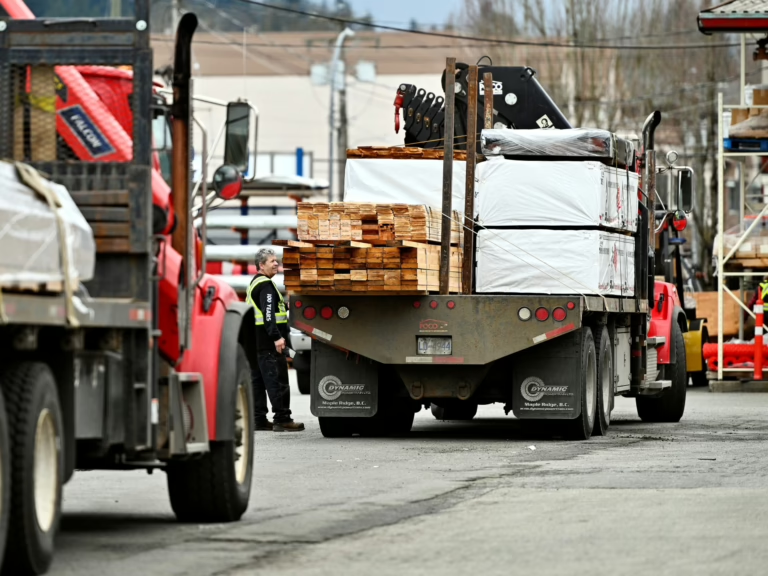In a recent statement, US President Donald Trump announced plans to implement new tariffs aimed at shielding the domestic production of medium- and heavy-duty trucks from foreign competitors.
Published On 6 Oct 2025
President Donald Trump declared that starting November 1, a 25% tariff will be imposed on all medium- and heavy-duty trucks imported into the United States. This move marks a notable intensification of his administration’s efforts to safeguard American manufacturers from international competition.
The announcement was made public on Monday.
Previously, in September, Trump indicated that tariffs on heavy truck imports would commence on October 1, citing national security concerns. He emphasized that these tariffs aim to shield domestic producers from “unfair foreign competition,” benefiting companies like Peterbilt and Kenworth, owned by Paccar, as well as Freightliner, a Daimler Truck subsidiary.
Trade agreements with Japan and the European Union currently set tariffs on light-duty vehicles at 15%, but it remains uncertain whether this rate will apply to larger trucks.
Additionally, the administration has permitted manufacturers to subtract the value of US-made components when calculating tariffs on light-duty vehicles assembled in Canada and Mexico.
Medium- and heavy-duty vehicles encompass a broad range, including delivery trucks, refuse collection vehicles, public utility trucks, transit buses, school buses, tractor-trailers, semis, and specialized vocational trucks.
Consequences for International Partners
The US Chamber of Commerce has voiced opposition to the proposed tariffs, urging the Commerce Department to reconsider. They highlighted that the primary exporters of these trucks-Mexico, Canada, Japan, Germany, and Finland-are all close allies or partners, posing no threat to US national security.
Mexico stands as the largest supplier of medium- and heavy-duty trucks to the US market. According to a government report released earlier this year, imports of these vehicles from Mexico have surged threefold since 2019, reaching approximately 340,000 units.
Under the United States-Mexico-Canada Agreement (USMCA), medium- and heavy-duty trucks can enter the US tariff-free if at least 64% of their value is derived from North American content, including parts like engines and axles, raw materials such as steel, or labor involved in assembly.
These tariffs could also impact Stellantis, the parent company of Chrysler, which manufactures heavy-duty Ram trucks and commercial vans in Mexico. Stellantis has actively lobbied against the imposition of steep tariffs on its Mexican-produced vehicles.
Sweden’s Volvo Group is investing $700 million in a new heavy-truck manufacturing plant in Monterrey, Mexico, scheduled to begin production in 2026.
Mexico hosts 14 companies involved in the manufacturing and assembly of buses, trucks, and tractor-trailers, along with two engine manufacturers, according to the US International Trade Administration.
Mexico has formally opposed the new tariffs, informing the US Commerce Department in May that Mexican trucks exported to the US contain on average 50% US-made components, including diesel engines.
In 2024, the US imported nearly $128 billion worth of heavy vehicle parts from Mexico, representing about 28% of total US imports in this category, according to Mexican officials.






















